To say Phil Wood played more games for St Albans City than anyone else in the history of the Club only scratches at the surface of a player who is deeply etched into the memory of those who saw him in the City’s colours between 1962 and 1984.
Phil signed for the Saints from Leggatts Way Old Boys during the 1961-62 season. His first run out came at right-half as one of five 18-year-olds to play for a City Reserves side that defeated Wycombe Wanderers Reserves 7-2 in an Isthmian League Reserve Section match at Clarence Park on 21st April 1962.
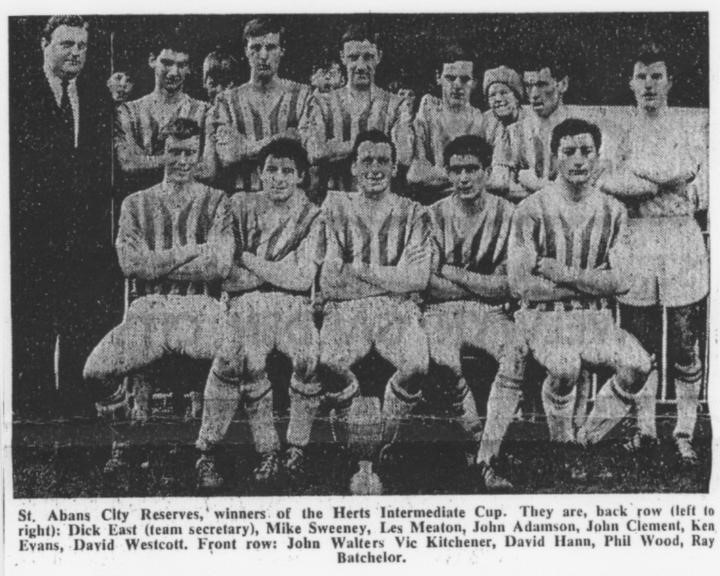 His First team debut came at the start of the following season as City beat Stevenage 2-1 at the Park in the Herts Charity Cup. It was not until the towards the end of the 1962-63 that Phil was finally handed his Isthmian League debut by coach Alex ‘Jock’ Weir. That came on 13th April – the 55thanniversary of the formation of the Club – when City, boosted by four goals from Barry Payne, won 6-2 at Champion Hill against Dulwich Hamlet. Phil featured in nine of the remaining 11 games of the season and collected a Herts Charity Cup runners up medal following defeat to Bishop’s Stortford on 1st June. It was the first of 18 First team cup finals in which he played whilst with St Albans. But Phil’s first cup final for St Albans in any competition had come on Easter Monday, 15thApril, when he was a member of the Reserve side that defeated Letchworth Town Reserves 3-2 in the Herts Intermediate Cup. For most of the season Phil played for the City Reserves, scoring once in 25 games. That goal was a penalty but he also missed two other efforts from 12 yards. He also, in June, played against Schleswig 06 and Oldesloe as City made a two-match tour of Germany.
His First team debut came at the start of the following season as City beat Stevenage 2-1 at the Park in the Herts Charity Cup. It was not until the towards the end of the 1962-63 that Phil was finally handed his Isthmian League debut by coach Alex ‘Jock’ Weir. That came on 13th April – the 55thanniversary of the formation of the Club – when City, boosted by four goals from Barry Payne, won 6-2 at Champion Hill against Dulwich Hamlet. Phil featured in nine of the remaining 11 games of the season and collected a Herts Charity Cup runners up medal following defeat to Bishop’s Stortford on 1st June. It was the first of 18 First team cup finals in which he played whilst with St Albans. But Phil’s first cup final for St Albans in any competition had come on Easter Monday, 15thApril, when he was a member of the Reserve side that defeated Letchworth Town Reserves 3-2 in the Herts Intermediate Cup. For most of the season Phil played for the City Reserves, scoring once in 25 games. That goal was a penalty but he also missed two other efforts from 12 yards. He also, in June, played against Schleswig 06 and Oldesloe as City made a two-match tour of Germany.
The 1963-64 season saw Harry Gibson installed as manager and Phil become an established member of the side with 34 appearances. He opened the campaign by scoring City’s first goal of the season as Corinthian Casuals were beaten 2-0 on 24thAugust. The match was played under the shadow of the newly erected but not yet switched on floodlights at the Park. During this season he made his first appearance in both the FA Cup and Amateur Cup, the latter a 2ndRound tie at home to Whitby Town that City lost 2-0. He also played in seven Reserve team matches; it was to be another 18 years until he next turned out for the City’s second string.
A year later, 1964-65, Phil topped the appearances chart for the first time when playing in 54 of City’s 56 games. He also collected his first senior winners medal as City defeated Dagenham in the two-legged Mithras Cup, but he lost out in the Herts Senior Cup as Barnet won that two-legged affair. The season ended with Phil going on his first overseas tour with St Albans as City drew 2-2 with Italian side Padova in June.
The 1965-66 season saw Phil play in excess of 50 games for the second successive season, in fact the first match of the campaign, a 4-0 win at Dulwich Hamlet with Barry Butterfield scoring all four goals, was Phil’s 100th for the Club. City’s interest in the Amateur Cup ended in the 3rd Round with a replay defeat to Wycombe Wanderers. The two matches against the Buckinghamshire side attracted crowds of 5,964 and 5,103, the latter at Clarence Park. In October Phil was selected for the Hertfordshire county side for the first of 11 times between then and January 1971. With victory over Hemel Hempstead Town, in the again two-legged final, Phil picked up his first Herts Senior Cup winners medal.
Phil kicked off the 1966-67 season with a Representative honour when selected for the Isthmian League XI that played champions Leytonstone at Granleigh Road on 20thAugust. At the opposite end of the season a Herts Charity Cup winners medal was added to his collection with a home win over Hemel Hempstead Town.
St Albans City had enjoyed steady rather than spectacular success under Gibson and in the summer of 1967 he was replaced by the Chesham United manager Sid Prosser at the start of a glorious, but all too brief, period in City’s history. Phil again made in excess of 50 appearances as City finished fifth in the Isthmian League, their highest placing since he had joined the Club. The Herts Senior Cup was secured with a 1-0 win over Hertford Town at Watford’s Vicarage Road stadium.
The 1968-69 season was a campaign in which Prosser’s side came so close to achieving football immortality courtesy of the FA Cup. Having progressed through four qualifying rounds, Phil played in the FA Cup proper for the first time as City, after a replay, defeated Wealdstone in the 1st Round. In the 2nd Round St Albans were just five minutes away from claiming their first Football League scalp in 44 years only for Walsall to salvage a somewhat flattering draw at the Park. City, and Wood’s, dream of playing Tottenham Hotspur in the 3rd Round vanished as Walsall won the replay 3-1. The crowd at Fellows Park numbered 10,626, the largest that Phil ever played in front of whilst with St Albans. Although it was of scant consolation, another Herts Senior Cup winners medal made its way into the Wood household as City defeated Cheshunt. St Albans played an astonishing 80 games during the season, just 38 of which were league games. Along with Les Burgess, Phil became the first player to make 70 appearances in one season. During the season Prosser switched Phil from right-half to a central defender. He formed a formidable partnership with Burgess and went on to perfect the sweeper role. Any desire Phil may have held of recharging his batteries with a quiet close season was washed away when he was invited to join the Middlesex Wanderers for a six-match tour of Japan and South Korea during May 1969. A year earlier Japan had won Bronze at the Mexico Olympics and included that competitions leading goal scorer, Kunishige Kamamoto, for a match against the Wanderers on 15thMay. Phil played in that game, which the Wanderers won 2-1 at the Olympic Stadium in Tokyo, in front of an estimated crowd of 36,000. (Phil is pictured to the far right of the front row).
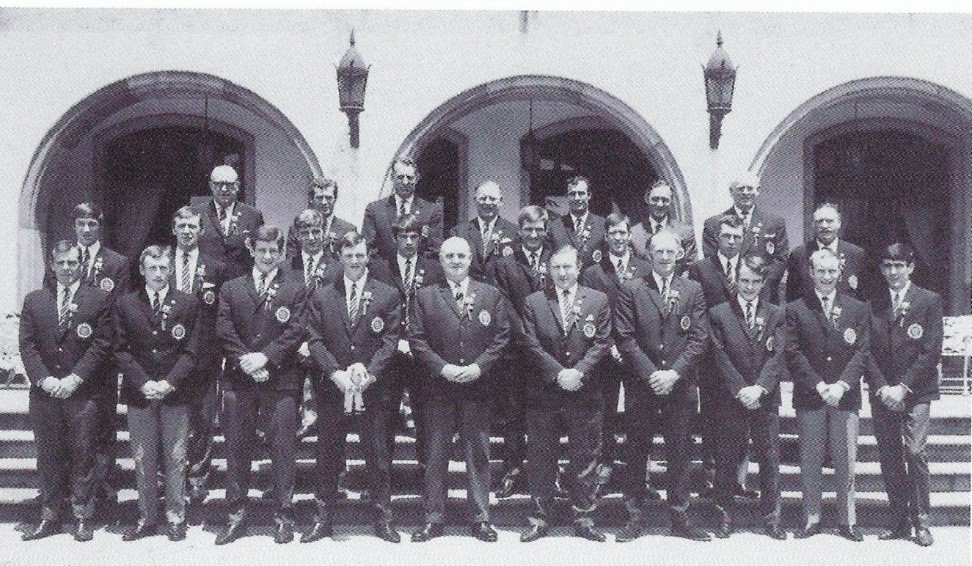
For the first time since the City’s halcyon days of the 1920s, St Albans went into the 1969-70 campaign as one of the fancied sides for the Amateur Cup. That view was strengthened when Wycombe Wanderers were seen off 2-0 in the quarter-final. The attendance at Loakes Park was given as 10,200, the biggest that Phil played in front of against fellow non-league opposition during his time as a Saint. But Amateur Cup glory did not materialise as Dagenham, following a 1-1 draw at Millwall, defeated City 1-0 in the replay at Luton Town. Towards the end of the season victory over Hitchin Town saw Phil collect his second Herts Charity Cup winners medal, but Hitchin gained revenge by defeating City in the more prestigious London Senior Cup final at Enfield. Phil looked to be closing in on international recognition when he was captain of The South side that played The North at Chesterfield on 18thOctober. The South lost 3-1 but he had another opportunity to further his international prospects a month later when he turned out for an FAXI that tackled Oxford University at Iffley Road. Unfortunately he was savagely criticised by England manager Charlie Hughes after the game, as his hopes appeared to suffer a bitter blow. More locally, Phil was one of a high number of City players that appeared in all five games Hertfordshire played in the Southern Counties Amateur Championship. Herts won the competition with a 2-1 win over Lincolnshire 2-1 in the final at Lincoln City’s Sincil Bank stadium. That match was actually held over to the following season, 26th September, with six City players in the starting XI being joined later in the game by substitute Dave Neville. Phil picked up two other representative honours at either end of the season when he was again selected for the Middlesex Wanderers, this time for two 0-0 draw with Netherlands in September and May.
 The 1970-71 season saw the Saints make a sustained bid for the Isthmian League championship for the only time during Phil’s time at Clarence Park. St Albans had to settle for third place but did lift the London Senior Cup, with victory over Enfield at Barnet, and the Wycombe Floodlit Cup, with a two-legged win over Marlow. Phil’s two goals in the 1stLeg against Marlow (his only double for the Saints) ended a personal run of 212 games without a goal. His hopes of winning a fourth Herts Senior Cup winners medal were dashed by a replay defeat to Bishop’s Stortford. Phil ended the season with his second appearance for the Isthmian League Representative side (alongside fellow Saints Les Burgess and John Butterfield), which lost 3-2 against the Athenian League at Wycombe.
The 1970-71 season saw the Saints make a sustained bid for the Isthmian League championship for the only time during Phil’s time at Clarence Park. St Albans had to settle for third place but did lift the London Senior Cup, with victory over Enfield at Barnet, and the Wycombe Floodlit Cup, with a two-legged win over Marlow. Phil’s two goals in the 1stLeg against Marlow (his only double for the Saints) ended a personal run of 212 games without a goal. His hopes of winning a fourth Herts Senior Cup winners medal were dashed by a replay defeat to Bishop’s Stortford. Phil ended the season with his second appearance for the Isthmian League Representative side (alongside fellow Saints Les Burgess and John Butterfield), which lost 3-2 against the Athenian League at Wycombe.
During the 1971-72 season Prosser’s squad began to break up and the side finished the season in seventh place. Phil topped the appearances table with 66 games and also picked up the Herts Advertiser Sports Personality of the Year for 1971. In what was to be Prosser’s final season, Wood added Mithras Cup and Hitchin Centenary Cup winners medals to his collection with wins over Tilbury and Baldock Town respectively. The delayed final of the Herts Charity Cup from the previous season allowed Phil to win three trophies in one season for the only time during his St Albans career. The disintegration of the City squad continued at the end of the season with Phil moving on to sign for Enfield after making 523 appearances for the Saints.
One of the major personal honours still not to have come Phil’s way was an Amateur England International cap, but within weeks of him signing for Enfield the wait was over as, on 17th June 1972, he played for England during a 2-0 win over Turkey in Ankara. The decision of England manager Charlie Hughes not to pick any St Albans City players caused plenty of frustration at Clarence Park. When John Butterfield and Tony Turley both joined Wood in playing for England shortly after leaving St Albans for Enfield the Saints bitterness only intensified. Whilst City looked to have been on the receiving end of victimisation, Wood too did not fully get the rewards his talent warranted and the Turkey game was to be his only international appearance.
Speaking towards the end of his playing days in January 1984, Phil recalled the time he left City in 1972. “It broke my heart to leave the club. But it was a well known fact that no matter how good you were you would never get picked for England if you played for St Albans. There were lots of us who deserved a chance during the Sid Prosser glory days. It was silly, I was hardly at Enfield for five minutes before I was in the England squad. My only regret is that I didn’t leave six months earlier like John Butterfield. Then I’d have played at Wembley – that’s the one ambition I never achieved.”
Phil left Enfield after just one season to join Wycombe Wanderers for 1973-74 and his one season at Loakes Park was crowned with the Isthmian League championship. He played in both matches against St Albans but took little pleasure in Wanderers 7-0 and 3-0 victories as City slid towards relegation.
The lure of Clarence Park proved too strong for Phil to resist and he was back with the City for the start of the 1974-75 season. Manager Tommy Barnett did a decent job in rebuilding the squad following relegation and with Phil Wood back in the side the Saints mounted a promotion challenge that only faded in the closing weeks of the season. By that time Prosser had returned for his second stint as City manager. Phil, 32 at the end of the season, was the leading appearance maker for the third and final time as he featured in 63 of City’s 66 games. But the season ended on a sour note for the City defender, as during the final match of the season defeat to Finchley in the Isthmian League Subsidiary Trophy, Phil was dismissed for the first time in his career, for which he received a two-week ban.
The 1975-76 season was a disappointing campaign for the Club in that a promotion bid was not achieved but it did provide a career best for Phil with his four league goals being the highest he recorded in a single season.
The club drifted during the remainder of the decade under a succession of managers. Prosser quit on the eve of the 1976-77 season to be replaced by John Clark who in turn was followed by Bob Murphy, Maurice Walby and Ron Duke. No cups were added to the trophy cabinet during this period with only Murphy coming close to leading the Club to promotion. At the end of the 1976-77 season two more runners-up medals were added to Phil’s collection as City fell to Hitchin Town in a thrilling Herts Charity Cup final and then lost out on penalties to Boreham Wood in the final of the Mithras Cup. Sandwiched between the two cup finals, a Testimonial match was staged in Phil’s honour between two teams of Past and Present City players.
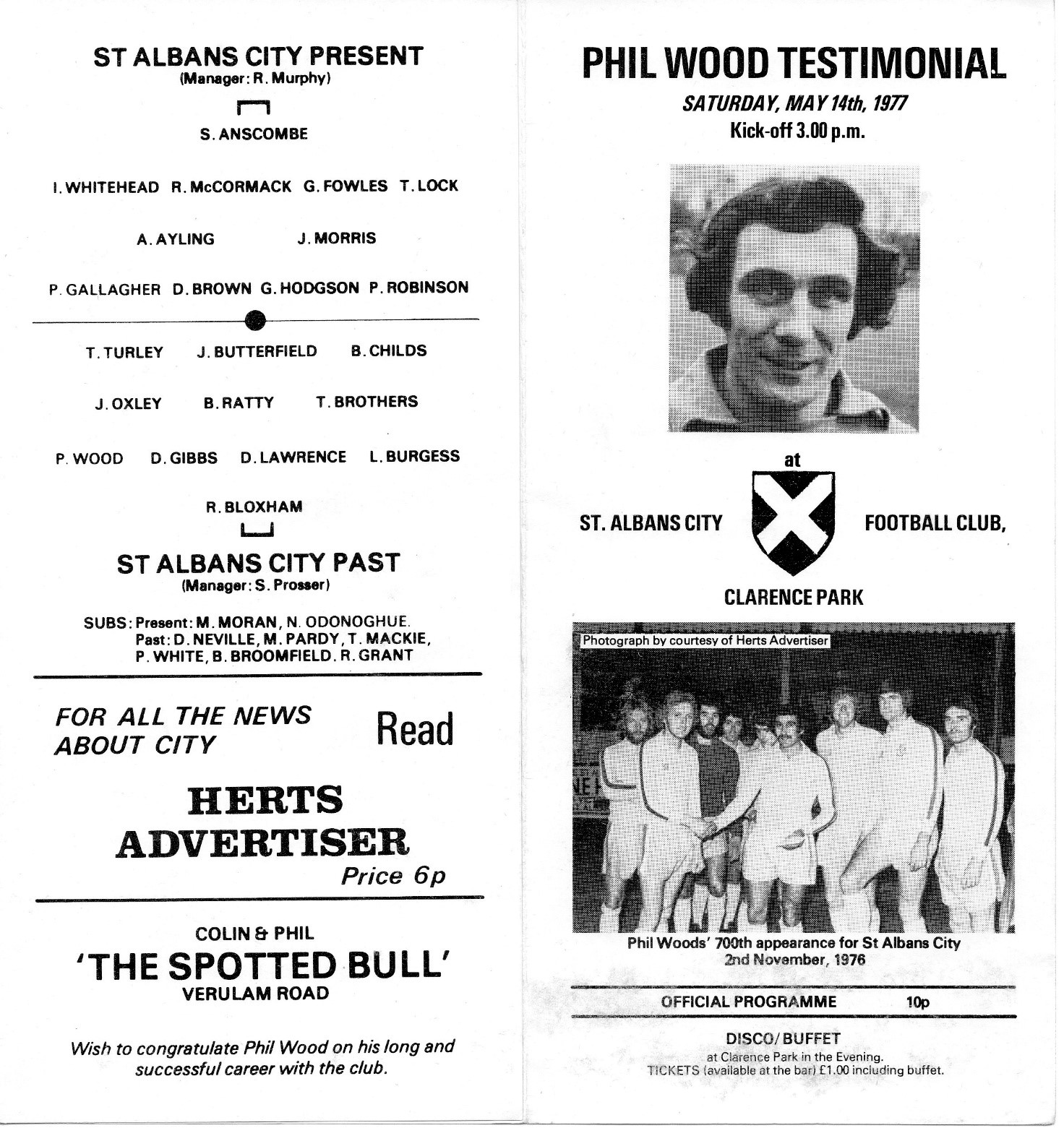
The 1978-79 season saw the Club in financial difficulty and it was only through the merger of Leytonstone and Ilford that City, in finishing bottom but one, were not relegated. It was during this season that Phil, in a Herts Senior Cup semi-final victory over Bishop’s Stortford, scored his 30th and final goal for the Club. In the final Walby’s side gave a good account of themselves but for Phil a 3-2 defeat to Watford at Vicarage Road left him with 11 winners and seven runners-up medals from his 18 cup finals as a City player. The experience he provided in a predominantly young squad shone through and he was duly voted the Supporter’s Player of the Year.
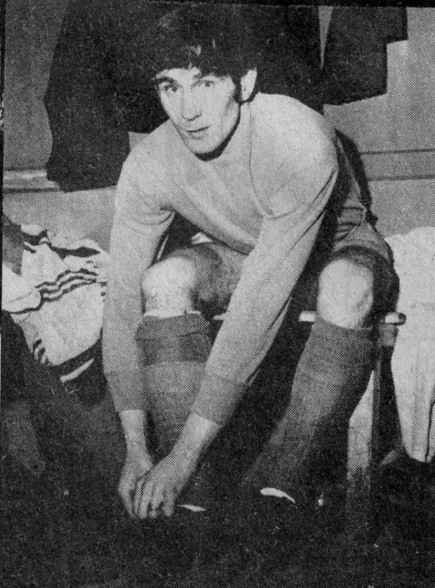 City enjoyed improved fortunes during 1979-80 with the backbone of the side being built on experience as Wood was joined by fellow ‘old-boys’ John Butterfield and Dave Lawrence. Towards the end of that season Walby made way for Duke at the start of two fascinating years for the Saints. Wood was only involved in the first, 1980-81, but 12 years after the Walsall game he had another sniff of FA Cup glory when he came on a substitute during a 2nd Round replay defeat to Torquay United at Plainmoor.
City enjoyed improved fortunes during 1979-80 with the backbone of the side being built on experience as Wood was joined by fellow ‘old-boys’ John Butterfield and Dave Lawrence. Towards the end of that season Walby made way for Duke at the start of two fascinating years for the Saints. Wood was only involved in the first, 1980-81, but 12 years after the Walsall game he had another sniff of FA Cup glory when he came on a substitute during a 2nd Round replay defeat to Torquay United at Plainmoor.
But following the Torquay game his playing days at Clarence Park looked to be over as he teamed up with Maurice Walby at Letchworth. Phil remained at Letchworth for the whole of the 1981-82 season, where he won the Player of the Year award, but returned to St Albans the following season as player/manager to the Reserve team. John Butterfield, his playing days ended by injury, was now First team manager. Phil’s first foray into management was a success as the Reserves won the Southern Combination championship. He featured in 16 Reserve team matches and also five First team games.
But 1982-83 was not a good season for the Saints over all with the First team being relegated to the Second Division of the Isthmian League (factually the Third Division). Phil continued to manage the Reserve side at the start of the 1983-84 season but on 19thNovember was recalled to the First team by manager John Mitchell. City defeated Horsham 5-0 that day; Phil then missed just four of the remaining 32 games of the season and City were promoted as runners-up to Basildon United. Unfortunately his return did add one blemish to his record when he was sent off for only the second time in his career as City went down 6-2 in the Herts Senior Cup to Barnet at Underhill. He featured in an eight-game winning run at the end of the season that secured promotion but he suffered a setback in the final week of the season. That occurred when he came off the bench for the Reserves during their 5-1 Southern Combination Knock-Out Cup Final defeat to Hitchin Town at Luton Town’s Kenilworth Road home. At the end of the campaign Phil made his final overseas trip with the Club when he appeared in a City side that went down 3-2 to Tus Hochheim in (West) Germany.
As the curtain came down on the season Phil declared, “That’s it. I’m not playing any more – First team or Reserves.” He was almost right, for he made one final appearance when he replaced John Watt for the last four minutes of City’s 3-2 League Cup Preliminary Round win over Southall at Western Road on 18th August 1984.
For many years it was believed that Phil Wood had played in excess of 1,000 games for St Albans City, it was only through extensive match-by-match research at the end of the 1980s that this proved to be incorrect.
As various, perceived, landmarks were reached he was presented with gifts ranging from a decanter, a silver salver to a watch. The Testimonial match in 1977 attracted a gate of 394 spectators, which contributed £98 towards his testimonial fund that eventually reached in the region £300.
For what was thought at the time to be Phil’s 1,000th game for St Albans City visitors Uxbridge formed a guard of honour as he took to the pitch on the 10th January 1984. The Middlesex club, who were only denied victory by Terry Benning’s injury time equaliser, also presented Phil with a bottle of champagne. The directors of St Albans City presented him with a silver tea service.
But, as research later revealed, the Uxbridge match was actually Phil’s 883rdfor the Club and when his playing days finally ended with that cup tie against Southall on 18th August 1984 – 22-years after his City debut – Phil Wood had played a quite magnificent 900 times for St Albans City; 412 games more than the second highest appearance maker, Steve Clark.
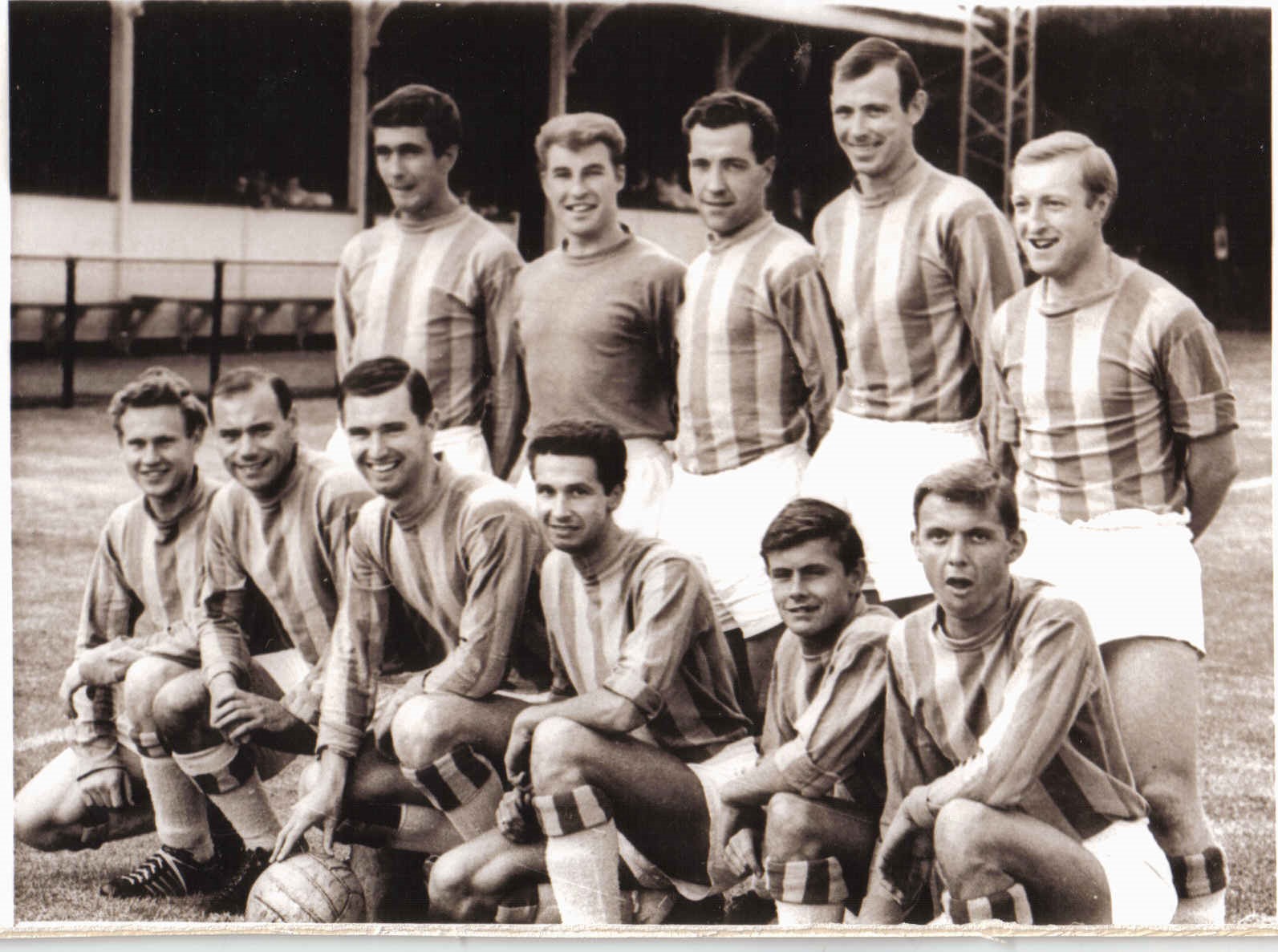
St Albans City 1964-65
Phil Wood, Dave Westcott, Dickie Last, Dave Bromley, Alan McDonnell, Dave Sills, Roy Agar, Brian Nisbet, Jim Whiting, Herbie Smith, Billy Spicer
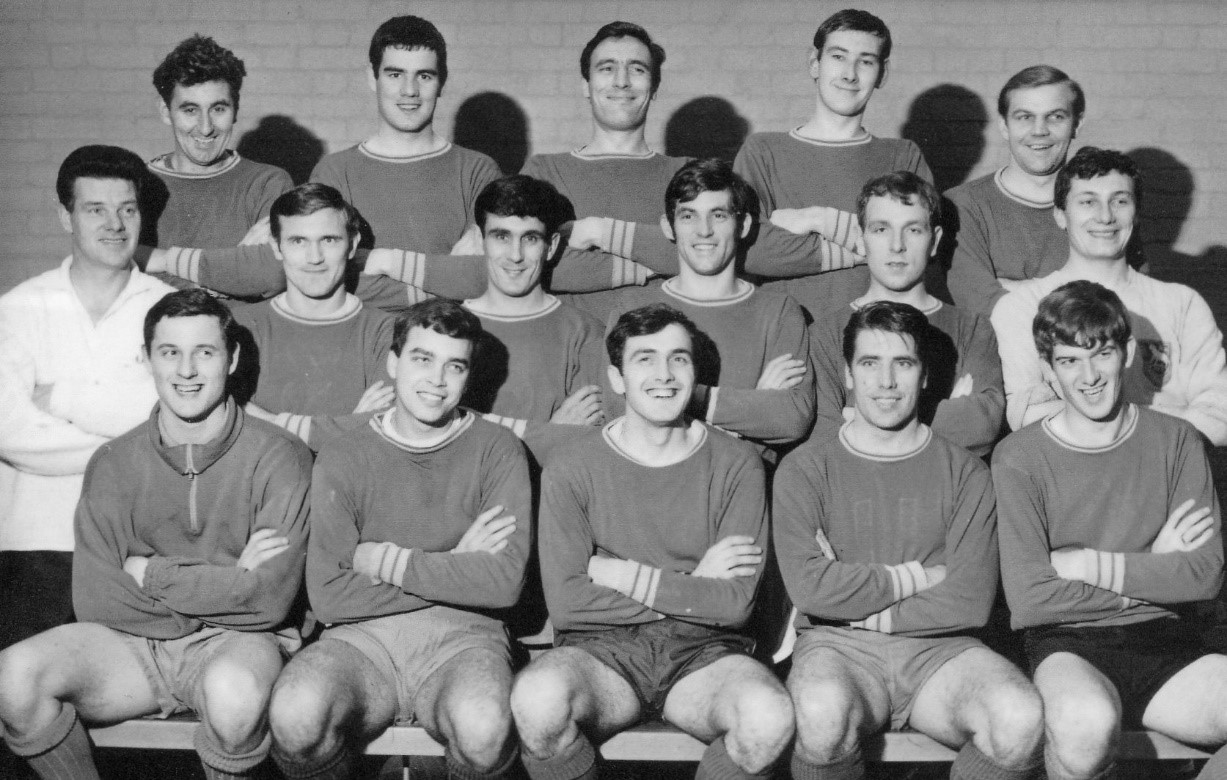
St Albans City 1968-69
Denis Gibbs, Mick Harman, Les Burgess, Ian Lomas, Dave Neville
Brian Francis, Bobby Childs, Phil Wood, Bill Ratty, John Butterfield, Ron Whiteaker
Peter Spittle, John Mann, Dave Lawrence, Bill Broomfield, Paul White
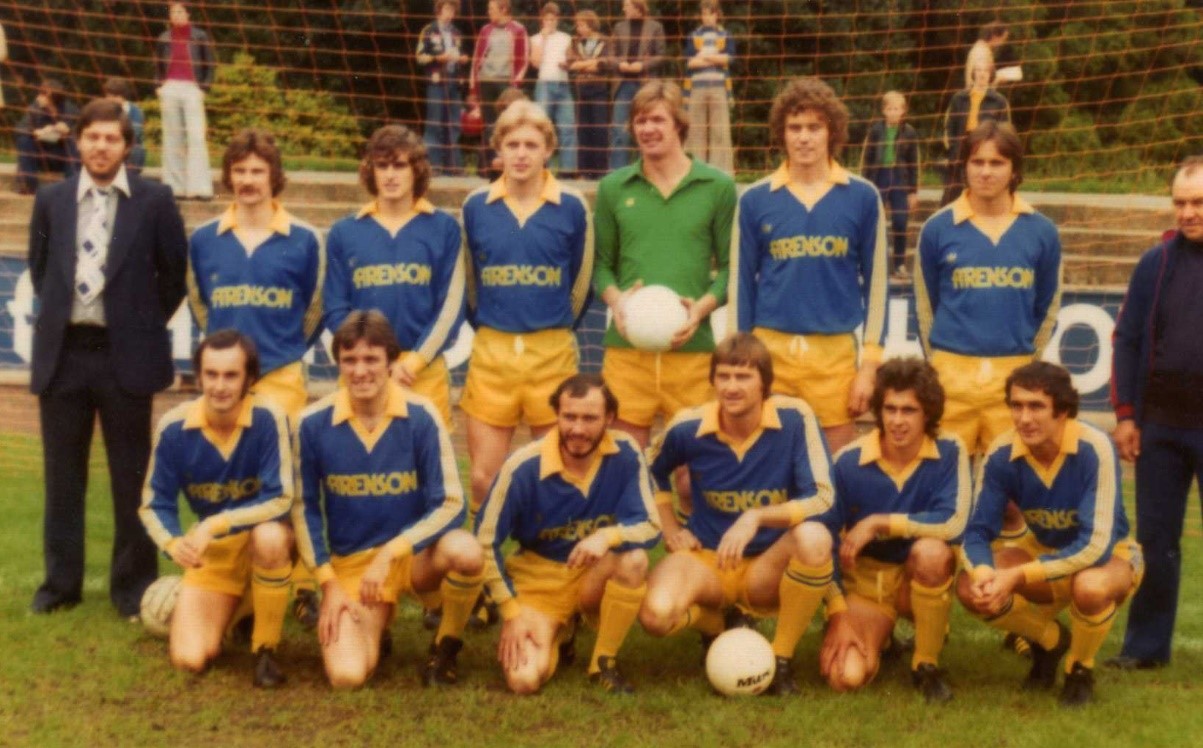
St Albans City 1977-78
Bob Murphy (Manager), Willie Whyte, Alan Ayling, Tony Lock, Steve Wyatt, Bob Petty, Ian Whitehead, Brian Wright (trainer)
Les McCormack, Barry Jobson, Chris Duggan, Derek Brown, Paul Mayles, Phil Wood
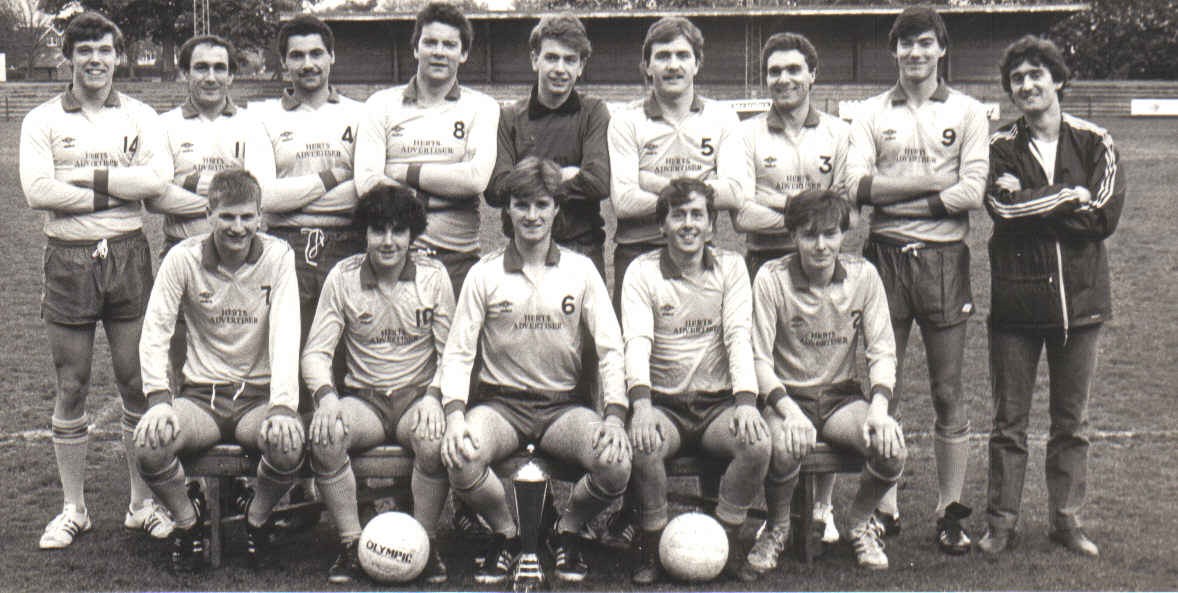
St Albans City Reserves 1982-83
Brett Vince, Phil Wood (Player/Manager), Martin Stanley, Glen Tyler, Trevor Cox, Phil Russell, Henry Rios, Jeremy Bassill, Martin White
Gary Lockerby, Stuart Fitzsimmons, Les Johnson, Phil Foster, Mark Riddell